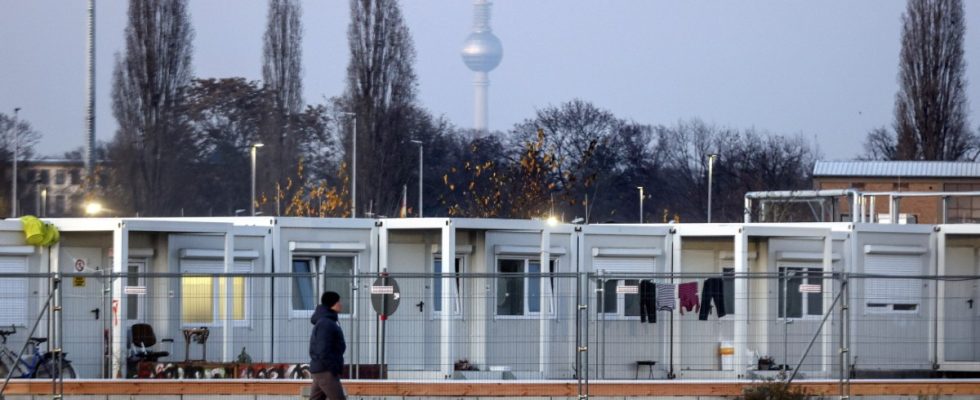Larger events are known to cast their shadows, and sometimes it is worth asking who was the first to switch on the associated light. In the case of the federal-state meeting on refugee financing next week, it was: the federal government. A paper was circulated from government circles this week that, although it has no official status, it does have a clear purpose: to put the federal government’s position in the best possible light and give it a head start in the contest for interpretation.
1.06 million refugees from Ukraine are currently registered in Germany, plus around 300,000 refugees from other countries. When the prime ministers, the chancellor and other leading members of the government meet in the chancellery on Wednesday, the question will be who bears what share of the financial burden. This is nothing unusual for federal cooperation. What is unusual is that this time the federal government makes it abundantly clear in advance: there is nothing more to be had! “Money is not the focus,” said a government spokesman on Friday. Only the Greens have recently spoken out in favor of greater support for the municipalities. All sides say it will be a confrontational meeting.
This is no wonder in two ways. On the one hand, the traffic light means that there is once again a large opposition party that not only has a certain need to raise its profile, but also has the say in several countries. While in Groko’s time both SPD and CDU-led state governments felt a residual partisan tie towards Berlin, this no longer applies to the state leaders of the Union, of course.
On the other hand, it is simply about many billions, of which the federal states say that they and the municipalities urgently need them, and the federal government asserts that it does not have them. The calculation of the federal government goes like this: 80 percent of the refugees who are currently in Germany come from the Ukraine. But because they don’t have to go through an asylum procedure, they get citizen money (90 percent of which is paid by the federal government) from day one instead of help from the Asylum Seekers Benefits Act (for which the federal states would be responsible). The message: Compared to 2015/2016, a similarly high number of refugees costs the countries only a fraction.
If you believe the federal budget, this year 15.6 billion euros will flow to the federal states for refugee financing, while in 2015/2016 it was just over eleven billion. The assumption of the Ukraine refugees in the citizen money alone cost the federal government three billion euros in 2022, including accommodation costs. Five billion are planned for 2023. For migrants from other countries who have already been recognized, another five billion will be added for social benefits and accommodation costs. In terms of costs, the asylum seekers who have not yet been recognized remain with the federal states. To put this in perspective: in 2022, 218,000 asylum applications were made from countries other than Ukraine – a similar number to 2014, before the great refugee movement of 2015/2016. However, the states did not receive any support from the federal government at that time; Refugee costs are a matter for the state. And: Since 2020, the federal government has been bearing around 70 percent of the accommodation costs for everyone who is dependent on social benefits, which significantly relieves the local authorities.
School and day-care costs are also increasing
The dispute has a meta-level: the states have long felt that the federal government is constantly ordering new services and then letting them bear the costs. The federal government, in turn, points out that the federal states are now getting the larger part of the tax revenue – and just like the municipalities would have achieved budget surpluses in 2022, the federal government, on the other hand, had a deficit of 116 billion euros.
However, it is also true that the federal states and local authorities must have balanced budgets as part of the debt brake, while a certain amount of new debt is permissible for the federal government. Federal states and municipalities also refer to the costs of school and daycare places for refugee children. That’s why the country heads have clear demands: they want more per capita flat rates; for all refugees, for underage refugees and for integration. In addition, the federal government is to assume all of the accommodation costs for all refugees.
The question is how much room the dispute over money leaves for other discussions. For example, about preliminary asylum checks at the EU’s external borders, which Interior Minister Nancy Faeser (SPD) wants; about the assessment of Finance Minister Christian Lindner (FDP) on the RTL television station that “physical protection of the external border” must also be considered. Or about the initiative by the Thuringian Prime Minister Bodo Ramelow (left) to recognize young asylum seekers as migrant workers after a certain period of time. Despite the difficult starting position, the government spokesman was optimistic on Friday: One is confident of coming to joint appointments.

